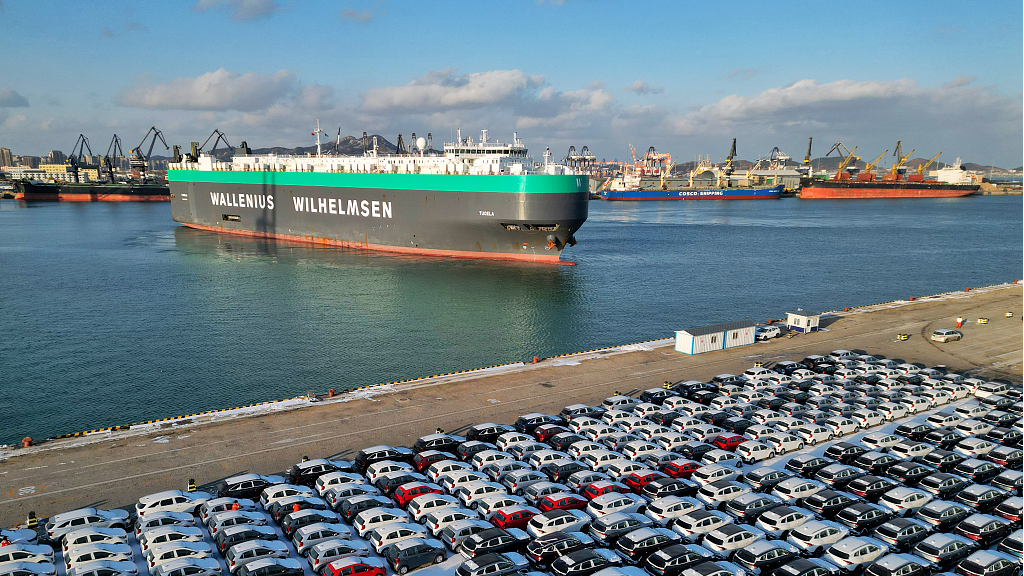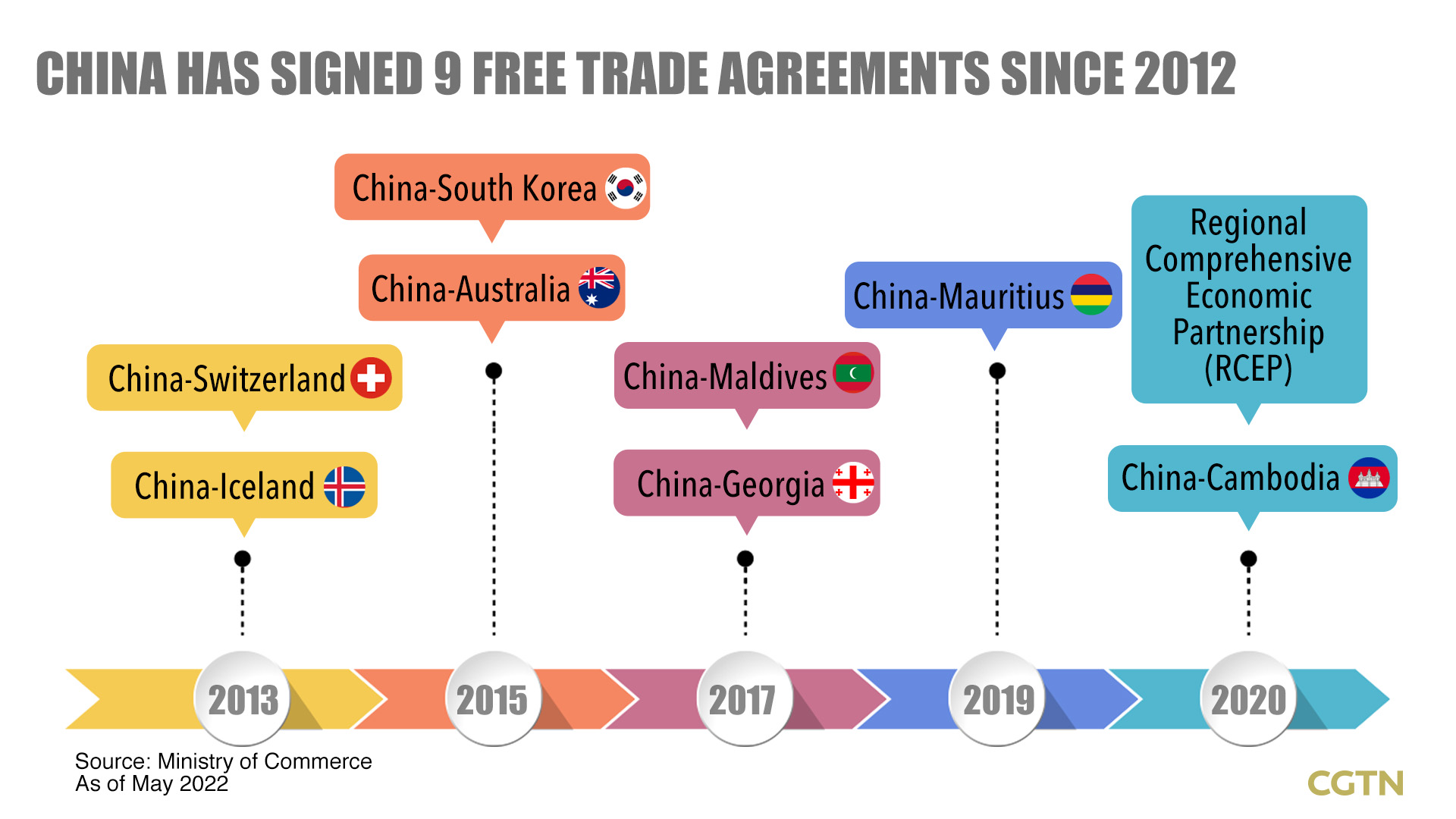
A port in Yantai, Shandong Province, China, December 18, 2022. /CFP
A port in Yantai, Shandong Province, China, December 18, 2022. /CFP
Seven years ago, on December 20, 2015, China signed free trade agreements with South Korea and Australia both.
The trade pact between China and South Korea aimed to eliminate 90 percent of import tariffs over the next two decades since 2015, according to Xinhua News agency.
According to Chinese customs data, China is South Korea's largest trade partner and largest export market. The bilateral trade between the two countries reached $362 billion last year, with a 26.9-percent year-on-year increase.
Meanwhile, 96.8 percent of Australia's exports to China would enter duty free in 15 years since 2015, according to Xinhua.

In 2021, bilateral trade between China and Australia amounted to approximately $231.2 billion, an annual rise of 35.1 percent, with China's imports from Australia reaching $164.82 billion, jumping 40.6 percent from a year ago, according to China's Ministry of Commerce (MOFCOM).
As this year marks the 50th anniversary of the establishment of diplomatic relations between the two countries, MOFCOM spokesperson Gao Feng earlier said that economic and trade cooperation has been one of the most active and vibrant driving forces promoting bilateral relations over the past 50 years.
"The sound and stable development of China-Australia relations serves the fundamental interests and common aspirations of the two peoples, and contributes to the peace, stability and prosperity of the Asia-Pacific region," he said.
On Tuesday, Australian Foreign Minister Penny Wong arrived in China. Her visit marks the first by an Australian foreign minister since November 2018.
The top diplomat will be hosted for talks by Chinese State Councilor and Foreign Minister Wang Yi on Wednesday in Beijing.